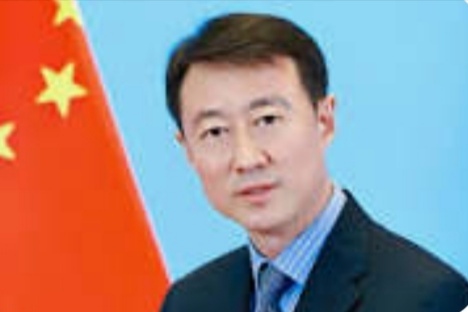The World Health Organisation (WHO) says at the moment there is no conclusive scientific evidence confirming a possible link between autism and the use of tylenol during pregnancy.
Tylenol, is a popular brand of pain relief medication sold in the US, Canada, and other countries. Its active ingredient is acetaminophen, better known as paracetamol.
The WHO’s statement comes after United States President Donald Trump linked autism to childhood vaccine use and the use of Tylenol by women when pregnant.
He said Tylenol “is no good” and that pregnant women should only take it in cases of extreme fever
“Don’t take Tylenol. Don’t take it. Fight like hell not to take it,” Trump said.
He called the rise in reported autism cases a “horrible crisis”, and an issue that he has “very strong feelings about”.
In a statement on Wednesday, the WHO confirmed that nearly 62 million people have autism spectrum disorder globally — a diverse group of conditions related to the development of the brain.
Although, as a result of awareness and diagnosis, the numbers have improved in recent years, the exact causes of autism have not been established, and it is understood multiple factors can be involved.
“Extensive research has been undertaken over the past decade, including large-scale studies, looking into links between acetaminophen use during pregnancy and autism,” the statement reads.
“At this time, no consistent association has been established. WHO recommends that all women continue to follow advice of their doctors or health workers, who can help assess individual circumstances and recommend necessary medicines.
“Any medicine should be used with caution during pregnancy, especially in the first three months, and in line with advice from health professionals.”
The global health body also said a robust, extensive evidence base exists showing childhood vaccines do not cause autism, with large, high-quality studies from many countries reaching the same conclusion.
“Original studies suggesting a link were flawed and have been discredited. Since 1999, independent experts advising WHO have repeatedly confirmed that vaccines—including those with thiomersal or aluminium—do not cause autism or other developmental disorders,” the statement reads.
“Childhood vaccine schedules are developed through a careful, extensive, evidence-based process involving global experts and country input. The childhood immunisation schedule, carefully guided by WHO, has been adopted by all countries and has saved at least 154 million lives over the past 50 years.
“The schedule remains essential for the health and wellbeing of every child and every community. These schedules have continually evolved with science and now safeguard children, adolescents and adults against 30 infectious diseases.”





